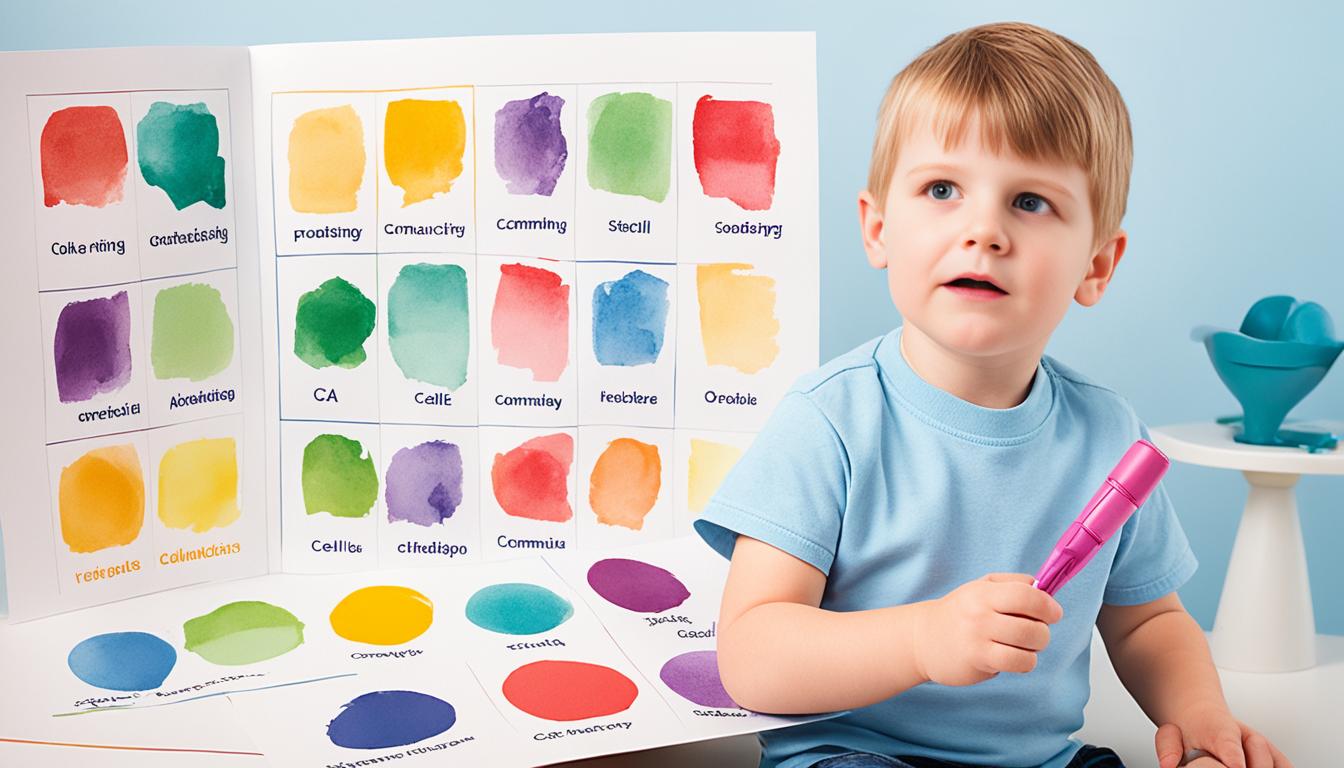Childhood Apraxia of Speech (CAS) is a disorder that makes talking hard for kids. It affects how precise and consistent their speech movements are. Kids with CAS have trouble saying sounds right and moving from one sound to the next. This disorder is different from a similar one that adults get.
CAS is diagnosed by looking at specific signs. These signs include making mistakes with sound, having trouble moving between sounds, and not speaking rhythmically. Kids with CAS might also have problems with moving and understanding things. To help, they need special therapy that focuses on how they learn to move their mouth and tongue for better speech.
Researchers are looking into stem cell therapy as a new way to treat CAS. This therapy may use the body’s own ability to heal. It could fix the parts of the brain that help with talking. This might improve how well children with CAS can speak and understand.
Key Takeaways:
- CAS is a disorder that affects how kids talk.
- Kids with CAS have a hard time saying sounds correctly and correctly visit.
- Signs for diagnosing CAS include making sound errors, struggling with sound transitions, and having an odd rhythm when speaking.
- Treating CAS involves special speech therapy that helps kids learn to move their mouth and tongue better. Treatment is often very focused and intense.
- Researchers are looking into stem cell therapy as a possible new treatment for CAS.
Causes and Diagnosis of CAS
The main cause of CAS is still unknown. Yet, there are signs that suggest it could be related to our genes. Some people with CAS have changes in the FOXP2 gene. CAS might happen alone or with other problems like intellectual disability, ADHD, and ASD.
To diagnose CAS, doctors look at how someone speaks. They also do listening tests and check their language skills. Sometimes, they may do genetic tests or brain scans, but they don’t always show something off in CAS cases.
Stem Cell Therapy for CAS
There’s no clear cure for Childhood Apraxia of Speech (CAS) yet. But, treatment usually involves special therapy. This therapy uses motor learning rules like rehearsing activities. It also includes oral-motor and oral-sensory workouts with visual hints. Yet, how well these work can be different. We need more studies to better understand how to treat CAS.
Recently, stem cell therapy has become a new possibility for CAS. Stem cells can change into many types of cells. This includes those used in speaking. Right now, researchers and doctors are running tests. They want to see if stem cells can help kids with CAS speak and understand better.
Families with a child who has CAS should get involved with support groups. This can greatly help. These groups offer advice, information, and comfort to families dealing with CAS. Teamwork is critical. By working with therapists and these support groups, plus trying new treatments like stem cell therapy, progress is possible. This progress can lead to better communication and life quality for children with CAS.

